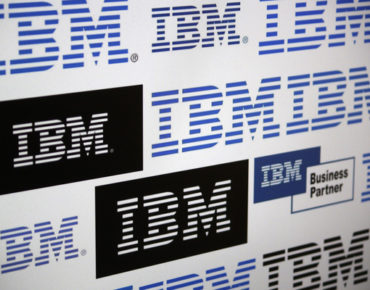IBM Acquiring Partner Turbonomic to Bolster Its Cloud AIOps Platform

For the last couple years, IBM has been ramping up its AI-powered application automation services for hybrid cloud customers to help them add efficiencies, cut costs and make cloud operations easier to use.
In its latest move to build upon that strategy, IBM is acquiring AIOps vendor and long-time OEM partner Turbonomic, which builds application resource management (ARM) and network performance management (NPM) software that helps customers use AI to optimize their IT resources. That includes dynamically optimizing resources including containers, VMs, servers, storage, networks, databases and more for any application that is running anywhere, from the cloud to on-premises.
IBM’s Turbonomic acquisition, which was unveiled on April 29 (Thursday), follows IBM’s 2020 acquisition of application performance monitoring vendor, Instana, and its 2020 acquisition of robotic process automation (RPA) vendor WDG Automation. Earlier this month, IBM also acquired process automation vendor MyInvenio, which builds on the IBM Cloud Pak for Business Automation, which helps customers deploy AI-powered automation to improve business performance.
By adding Turbonomic’s offerings to its expanding catalog of automation services, IBM says it can now provide customers with AI-powered automation capabilities that span from AIOps to application and infrastructure observability, all from one vendor. The complete line of services is built atop IBM’s Red Hat OpenShift platform and can run across any hybrid cloud environment. The Turbonomic capabilities will also be integrated with the ITOps capabilities in IBM’s Cloud Pak for Watson AIOps services.
The idea of AIOps is to give enterprises application and process observability and visibility into their IT infrastructures to ensure high availability and performance, while lowering costs due to improved efficiencies. AIOps is used to optimize IT resources across development, test and production environments.
Financial details of the Turbonomic deal, which is expected to close in the second quarter of 2021, were not disclosed.
Dinesh Nirmal, general manager of IBM Automation, told EnterpriseAI that the Turbonomic acquisition is a natural fit for IBM because the companies have shared a working relationship for several years, providing confidence in Turbonomic’s capabilities.
“We have already tested out the product to know this is a great asset,” said Nirmal.
Building an All-In-One Automation Platform
The latest acquisition will help IBM as it works to fill out and complete its planned all-in-one automation platform for customers, said Nirmal.
“It’s a strategic move to move from observability to actionable observability with AI,” he said, giving customers much more information to use for monitoring and improving their IT capabilities, he said. “An application could be misbehaving and it’s not performing well. You want to take an action based on that observability, and that’s where the application resource management comes in.”
More customers are asking IBM for increased capabilities to resolve these issues on a regular basis, he said. “That’s what customers need. The whole purpose of automation is to take complexity out and bring simplicity in.”
Turbonomic is the 11th hybrid cloud and AI-focused acquisition at IBM since Arvind Krishna became IBM’s CEO in April of 2020.
In a separate blog post about the acquisition, Turbonomic CEO Ben Nye wrote that “the synergy between Turbonomic and IBM stems from a shared purpose – to assure application performance, advance AIOps, and deliver cross-cloud and container management.”
Nye wrote that Turbonomic, which has been in business for 10 years, is a good fit for IBM, especially since Big Blue has also acquired Instana and launched its Watson AIOps.
“With Turbonomic’s ARM software integrated with the APM and real-time observability capabilities of Instana and the ITOps capabilities of IBM Cloud Pak for Watson AIOps, customers will be able to assure application performance and minimize costs through new levels of optimization,” wrote Nye. “The mission that Turbonomic initially set out on will continue – but now, at a previously unimaginable scale with the support from IBM. We look forward to working together to build the future of AI-driven hybrid cloud.”
Analysts: Turbonomic Acquisition Strengthens IBM’s Portfolio
Several IT analysts told EnterpriseAI that the addition of Turbonomic to IBM’s automation services will benefit customers.
“IBM is focusing on improving data center processes and cost efficiencies through a number of means, including enhanced application and network management,” said Charles King, the principal analyst with Pund-IT. “While optimizing application resources and network assets has long been important to data center customers, traditional processes and solutions tend to be cumbersome and time-consuming. IBM is aiming to change that equation via AI-enabled solutions, including its own homegrown IBM Cloud Pak for Watson AIOps and recent acquisitions, like Turbonomic and Instana.”
Karl Freund, the founder and principal analyst with Cambrian AI Research, said he also sees the deal as a good one.
“There is little doubt that AI can improve APM and Ops, optimizing IT resources to lower costs and improve services,” said Freund. “The real trick for IBM will be to leverage this capability to optimize hybrid cloud services.”
Another analyst, Bob O'Donnell, the president of TECHnalysis Research, said a major strength of Turbonomic’s technology is that is can track and automate how application code changes will impact operations and costs on the fly.
“This stuff is highly dynamic,” he said. “It’s one piece of a larger puzzle that they have around AI intelligence and the cloud. You’ve got a very complex, rapidly-moving world of development and everyone is trying to figure out how to do it as effectively as possible. That’s why I think it makes a lot of sense for IBM. It just builds out their capabilities.”














